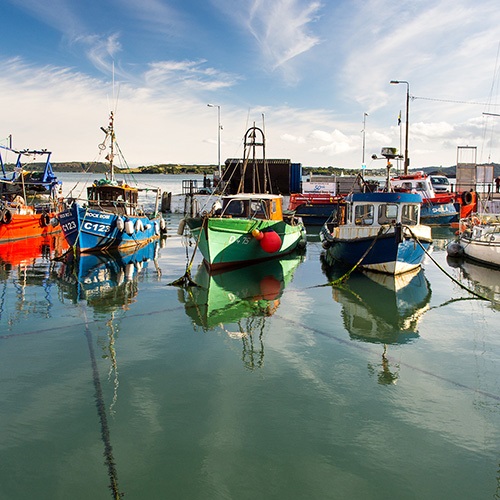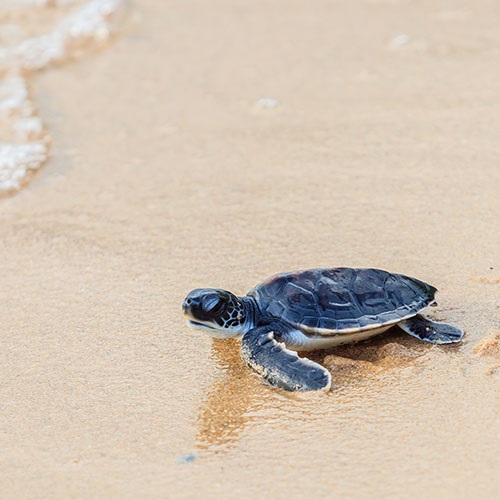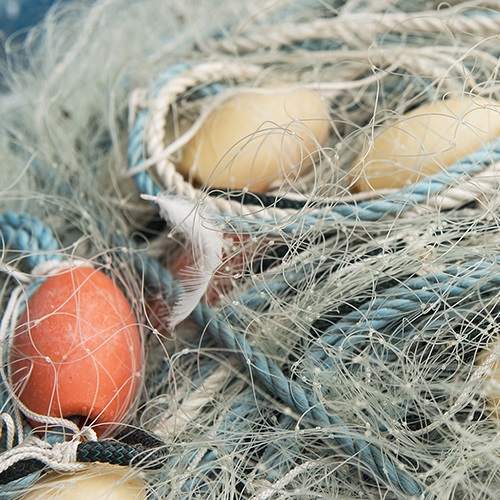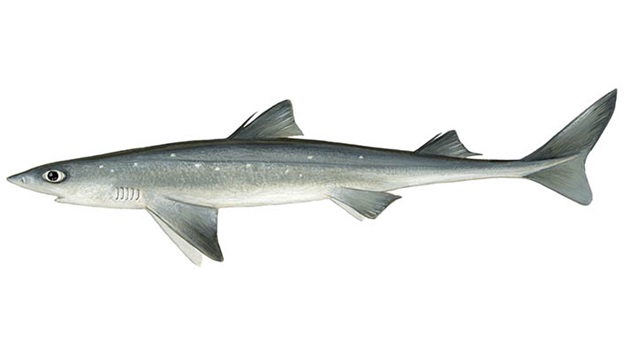Shark finning is a wasteful and abhorrent practice which is prohibited within MSC certified fisheries. The MSC is committed to ensuring shark finning does not take place in MSC certified fisheries.
The impact of shark finning
Shark finning is the cruel practice of removing any fins from a shark (including the tail) before discarding the remainder of the shark at-sea.
Sharks are slow-growing, long-living fish that produce few offspring. These life history traits, coupled with a high demand for shark products such as shark fins, meat and jaws, puts them at a high risk of over-fishing.
Since the 1970s there has been a 71% decline in shark and ray species, with the leading cause attributed to overfishing. Subsequently half of the world's 31 oceanic shark species are now listed as either endangered or critically endangered by the International Union for Conservation of Nature.
Many countries around the world have legislation in place banning shark finning. Shark fins may also be considered illegal products if taken from a protected species or harvested from a protected area.
When a shark has its fins removed and is cast overboard alive, it is unable to swim and breathe and subsequently drowns. By only having the fins of a shark onboard a vessel, the species becomes harder to identify; hampering regulations to protect sharks and gain accurate mortality estimates. It also allows a greater number of sharks to be killed, as more fins can be stored onboard boats than whole sharks.
It is estimated that around 97-100 million sharks are killed each year for the shark market, with many ending up in the shark fin trade. However the presence of shark fins within a commercial fishery does not automatically mean shark finning has taken place. A shark which is brought to shore and has its fins removed later, is not categorised as shark finning. This is because there is a legal trade in shark meat and fins. Indeed, legal shark fisheries support the livelihoods of many coastal communities around the world.
The MSC requirements for shark finning
MSC certified fisheries are among the best managed in the world. By meeting our requirements, they are demonstrating international standards of best practice in monitoring, management and environmental protection. They also show leadership in addressing the issue of shark finning.Shark finning is prohibited within MSC certified fisheries. Any entity (company or fisher) convicted of shark finning, and any vessel implicated in conviction, will not be eligible for MSC certification for at least two years.
The MSC’s expectation is that if evidence of shark finning is detected during an audit or assessment, a fishery will face suspension unless it can show the offending vessel has been expelled from the certificate. This provides fisheries with a mechanism to take action against this unacceptable practice. This intent is now outlined in the new version of the MSC Fisheries Standard.
The MSC Fisheries Standard requires certification bodies to assess the likelihood that any vessel in a fishery is engaged in shark finning, both within Principle 1 (sustainable stocks) and Principle 2 (minimising environmental impact).
The new version of the MSC Fisheries Standard includes strengthened requirements to ensure that the abhorrent practice of shark finning is not taking place in MSC certified fisheries. All fisheries that retain sharks are now required to have a Fins Naturally Attached (FNA) policy in place, with no exceptions.
We have also introduced new requirements for evidence used during a fishery assessment that will provide greater confidence than a Fins Naturally Attached policy, or a non-retention policy in cases where sharks cannot be landed (e.g. within a shark sanctuary) is being applied and enforced.
Latest global efforts
As part of our recent Fisheries Standard Review, we investigated global best management practice related to preventing shark finning. One such management best practice is the application of a fins naturally attached policy, which requires the whole shark to be landed, not just its fins.
We commissioned an independent review of the global uptake of fins naturally attached policies. The review investigated the implementation of shark finning bans in the 43 nations that catch the largest amount of sharks.
Of the 43 shark fishing nations reviewed:
- 21 have a finning ban in place
- 19 have a fins naturally attached policy in place
- Four only apply conservation and management measures set by Regional Fisheries Management Organisations
- Nine have no finning bans
- Nine are unknown or unverifiable
This review helped to inform the development of our strengthened requirements to prevent shark finning in MSC certified fisheries.
Find out more

Improving fisheries management
The MSC seeks to reward best practice in fisheries management and to support fisheries that are working to improve their management systems.

Endangered, threatened and protected species
The MSC ensures that certified fisheries allow the recovery of any Endangered, Threatened and Protected species.

Preventing lost gear and abandoned fishing gear (ghost fishing)
The MSC aims to reduce ghost fishing by rewarding fisheries that avoid gear loss and minimise waste.

